10 Signs Your Elderly Parent Needs Help
Apr 11, 2025
Apr 11, 2025



As our parents age, their needs evolve, often in ways that are difficult to recognize at first. Many seniors strive to maintain their independence, which can make it challenging for family members to identify when additional support is necessary. However, there are clear signs that may indicate your elderly parent needs help to ensure their safety, health, and overall well-being. Here are ten key signs to watch for:
1. Increased Safety Concerns
If your parent has experienced frequent falls, forgotten to turn off appliances, or struggled with stairs and other obstacles in their home, these are red flags that their safety may be at risk. Safety hazards can lead to serious injuries if left unaddressed. In-home care can provide mobility assistance and fall prevention measures, helping seniors navigate their living spaces safely.
2. Difficulty Managing Daily Tasks
Neglected household chores, expired food in the fridge, or disorganization may suggest that managing the home has become overwhelming. Additionally, if your parent is skipping meals or relying heavily on snacks instead of balanced meals, they could benefit from meal preparation support. Inconsistent personal hygiene—such as irregular bathing or dressing—can also indicate they need help with daily routines.
3. Noticeable Changes in Health
Subtle or sudden changes in health are often early indicators of a need for assistance. Look for unexplained weight loss, increased frailty, or difficulty managing medications. Missing doctor’s appointments or forgetting prescriptions can have serious consequences. Professional caregivers can ensure medications are taken correctly and health recommendations are followed.
4. Isolation or Withdrawal
Social withdrawal is common among aging individuals, especially those living alone. If your parent has stopped participating in hobbies they once enjoyed or avoids social interactions, it could signal loneliness or depression. In-home care provides companionship and emotional support through conversation and activities that foster connection.
5. Cognitive Decline
Memory lapses such as forgetting appointments, misplacing items frequently, or confusion about daily tasks might point to cognitive decline. This is especially concerning if your parent begins wandering or gets lost easily. Caregivers trained in dementia care can offer specialized support tailored to cognitive challenges.
6. Unexplained Mood Changes
Sudden irritability, sadness, or anxiety could be signs of underlying emotional distress or health issues. Aging often brings unique stressors that impact mental health. A caregiver can help seniors manage these emotions by providing companionship and encouraging engagement in uplifting activities.
7. Poor Financial Management
If you notice unpaid bills piling up or unusual spending habits, it might indicate difficulty managing finances—a common issue as cognitive function declines with age. This could also be a sign of vulnerability to financial scams. Family members or trusted professionals can step in to assist with financial oversight.
8. Declining Mobility
Struggling with basic movements such as walking or standing for extended periods may signal a need for mobility aids or physical therapy support. Caregivers can assist with mobility and ensure your parent remains active while minimizing injury risks.
9. Chronic Health Conditions Becoming Unmanageable
Conditions like diabetes, heart disease, or arthritis require consistent management that may become overwhelming for seniors living alone. If your parent is struggling to monitor symptoms or adhere to treatment plans, extra support can help them stay on track and improve health outcomes.
10. Signs of Neglect in Their Living Environment
A cluttered home, spoiled food in the kitchen, or an overall decline in cleanliness may suggest that maintaining their living space has become too difficult for your parent to handle alone. In-home caregivers can assist with light housekeeping to restore a clean and comfortable environment.
How Clara Can Help
Recognizing these signs is the first step toward ensuring your parent receives the care they need while maintaining their dignity and independence at home. Clara specializes in facilitating personalized in-home care services tailored to your loved one’s unique needs—whether it’s assistance with daily tasks, companionship to combat isolation, or specialized care for chronic conditions.
Clara’s caregivers provide one-on-one attention in the comfort of your loved one’s home, enabling them to age safely and confidently in familiar surroundings while giving you peace of mind.
If you’ve noticed any of these signs and feel it might be time to explore senior care options, Clara is here to guide you through the process. Schedule a call with a Clara Care Expert today to learn how we can support your family’s journey toward better care and comfort.
Taking action early ensures your elderly parent receives the assistance they need before challenges escalate—and Clara is ready to help every step of the way!
As our parents age, their needs evolve, often in ways that are difficult to recognize at first. Many seniors strive to maintain their independence, which can make it challenging for family members to identify when additional support is necessary. However, there are clear signs that may indicate your elderly parent needs help to ensure their safety, health, and overall well-being. Here are ten key signs to watch for:
1. Increased Safety Concerns
If your parent has experienced frequent falls, forgotten to turn off appliances, or struggled with stairs and other obstacles in their home, these are red flags that their safety may be at risk. Safety hazards can lead to serious injuries if left unaddressed. In-home care can provide mobility assistance and fall prevention measures, helping seniors navigate their living spaces safely.
2. Difficulty Managing Daily Tasks
Neglected household chores, expired food in the fridge, or disorganization may suggest that managing the home has become overwhelming. Additionally, if your parent is skipping meals or relying heavily on snacks instead of balanced meals, they could benefit from meal preparation support. Inconsistent personal hygiene—such as irregular bathing or dressing—can also indicate they need help with daily routines.
3. Noticeable Changes in Health
Subtle or sudden changes in health are often early indicators of a need for assistance. Look for unexplained weight loss, increased frailty, or difficulty managing medications. Missing doctor’s appointments or forgetting prescriptions can have serious consequences. Professional caregivers can ensure medications are taken correctly and health recommendations are followed.
4. Isolation or Withdrawal
Social withdrawal is common among aging individuals, especially those living alone. If your parent has stopped participating in hobbies they once enjoyed or avoids social interactions, it could signal loneliness or depression. In-home care provides companionship and emotional support through conversation and activities that foster connection.
5. Cognitive Decline
Memory lapses such as forgetting appointments, misplacing items frequently, or confusion about daily tasks might point to cognitive decline. This is especially concerning if your parent begins wandering or gets lost easily. Caregivers trained in dementia care can offer specialized support tailored to cognitive challenges.
6. Unexplained Mood Changes
Sudden irritability, sadness, or anxiety could be signs of underlying emotional distress or health issues. Aging often brings unique stressors that impact mental health. A caregiver can help seniors manage these emotions by providing companionship and encouraging engagement in uplifting activities.
7. Poor Financial Management
If you notice unpaid bills piling up or unusual spending habits, it might indicate difficulty managing finances—a common issue as cognitive function declines with age. This could also be a sign of vulnerability to financial scams. Family members or trusted professionals can step in to assist with financial oversight.
8. Declining Mobility
Struggling with basic movements such as walking or standing for extended periods may signal a need for mobility aids or physical therapy support. Caregivers can assist with mobility and ensure your parent remains active while minimizing injury risks.
9. Chronic Health Conditions Becoming Unmanageable
Conditions like diabetes, heart disease, or arthritis require consistent management that may become overwhelming for seniors living alone. If your parent is struggling to monitor symptoms or adhere to treatment plans, extra support can help them stay on track and improve health outcomes.
10. Signs of Neglect in Their Living Environment
A cluttered home, spoiled food in the kitchen, or an overall decline in cleanliness may suggest that maintaining their living space has become too difficult for your parent to handle alone. In-home caregivers can assist with light housekeeping to restore a clean and comfortable environment.
How Clara Can Help
Recognizing these signs is the first step toward ensuring your parent receives the care they need while maintaining their dignity and independence at home. Clara specializes in facilitating personalized in-home care services tailored to your loved one’s unique needs—whether it’s assistance with daily tasks, companionship to combat isolation, or specialized care for chronic conditions.
Clara’s caregivers provide one-on-one attention in the comfort of your loved one’s home, enabling them to age safely and confidently in familiar surroundings while giving you peace of mind.
If you’ve noticed any of these signs and feel it might be time to explore senior care options, Clara is here to guide you through the process. Schedule a call with a Clara Care Expert today to learn how we can support your family’s journey toward better care and comfort.
Taking action early ensures your elderly parent receives the assistance they need before challenges escalate—and Clara is ready to help every step of the way!
As our parents age, their needs evolve, often in ways that are difficult to recognize at first. Many seniors strive to maintain their independence, which can make it challenging for family members to identify when additional support is necessary. However, there are clear signs that may indicate your elderly parent needs help to ensure their safety, health, and overall well-being. Here are ten key signs to watch for:
1. Increased Safety Concerns
If your parent has experienced frequent falls, forgotten to turn off appliances, or struggled with stairs and other obstacles in their home, these are red flags that their safety may be at risk. Safety hazards can lead to serious injuries if left unaddressed. In-home care can provide mobility assistance and fall prevention measures, helping seniors navigate their living spaces safely.
2. Difficulty Managing Daily Tasks
Neglected household chores, expired food in the fridge, or disorganization may suggest that managing the home has become overwhelming. Additionally, if your parent is skipping meals or relying heavily on snacks instead of balanced meals, they could benefit from meal preparation support. Inconsistent personal hygiene—such as irregular bathing or dressing—can also indicate they need help with daily routines.
3. Noticeable Changes in Health
Subtle or sudden changes in health are often early indicators of a need for assistance. Look for unexplained weight loss, increased frailty, or difficulty managing medications. Missing doctor’s appointments or forgetting prescriptions can have serious consequences. Professional caregivers can ensure medications are taken correctly and health recommendations are followed.
4. Isolation or Withdrawal
Social withdrawal is common among aging individuals, especially those living alone. If your parent has stopped participating in hobbies they once enjoyed or avoids social interactions, it could signal loneliness or depression. In-home care provides companionship and emotional support through conversation and activities that foster connection.
5. Cognitive Decline
Memory lapses such as forgetting appointments, misplacing items frequently, or confusion about daily tasks might point to cognitive decline. This is especially concerning if your parent begins wandering or gets lost easily. Caregivers trained in dementia care can offer specialized support tailored to cognitive challenges.
6. Unexplained Mood Changes
Sudden irritability, sadness, or anxiety could be signs of underlying emotional distress or health issues. Aging often brings unique stressors that impact mental health. A caregiver can help seniors manage these emotions by providing companionship and encouraging engagement in uplifting activities.
7. Poor Financial Management
If you notice unpaid bills piling up or unusual spending habits, it might indicate difficulty managing finances—a common issue as cognitive function declines with age. This could also be a sign of vulnerability to financial scams. Family members or trusted professionals can step in to assist with financial oversight.
8. Declining Mobility
Struggling with basic movements such as walking or standing for extended periods may signal a need for mobility aids or physical therapy support. Caregivers can assist with mobility and ensure your parent remains active while minimizing injury risks.
9. Chronic Health Conditions Becoming Unmanageable
Conditions like diabetes, heart disease, or arthritis require consistent management that may become overwhelming for seniors living alone. If your parent is struggling to monitor symptoms or adhere to treatment plans, extra support can help them stay on track and improve health outcomes.
10. Signs of Neglect in Their Living Environment
A cluttered home, spoiled food in the kitchen, or an overall decline in cleanliness may suggest that maintaining their living space has become too difficult for your parent to handle alone. In-home caregivers can assist with light housekeeping to restore a clean and comfortable environment.
How Clara Can Help
Recognizing these signs is the first step toward ensuring your parent receives the care they need while maintaining their dignity and independence at home. Clara specializes in facilitating personalized in-home care services tailored to your loved one’s unique needs—whether it’s assistance with daily tasks, companionship to combat isolation, or specialized care for chronic conditions.
Clara’s caregivers provide one-on-one attention in the comfort of your loved one’s home, enabling them to age safely and confidently in familiar surroundings while giving you peace of mind.
If you’ve noticed any of these signs and feel it might be time to explore senior care options, Clara is here to guide you through the process. Schedule a call with a Clara Care Expert today to learn how we can support your family’s journey toward better care and comfort.
Taking action early ensures your elderly parent receives the assistance they need before challenges escalate—and Clara is ready to help every step of the way!
More about senior health
More about senior health


What Is A Care Manager?



Camille Christie
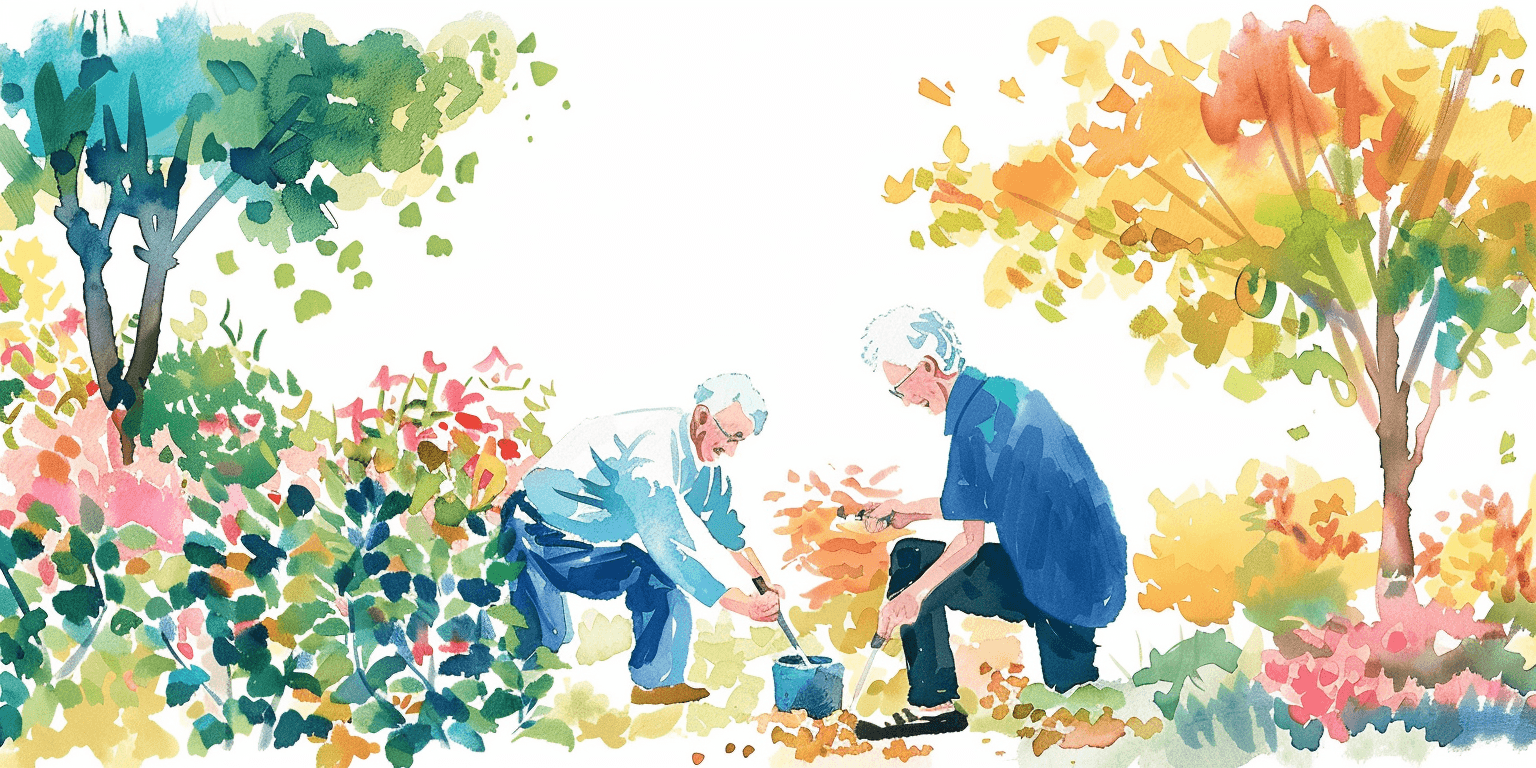

The Physical and Mental Health Benefits of Gardening for Seniors



Quynh Thi Pham, OTS
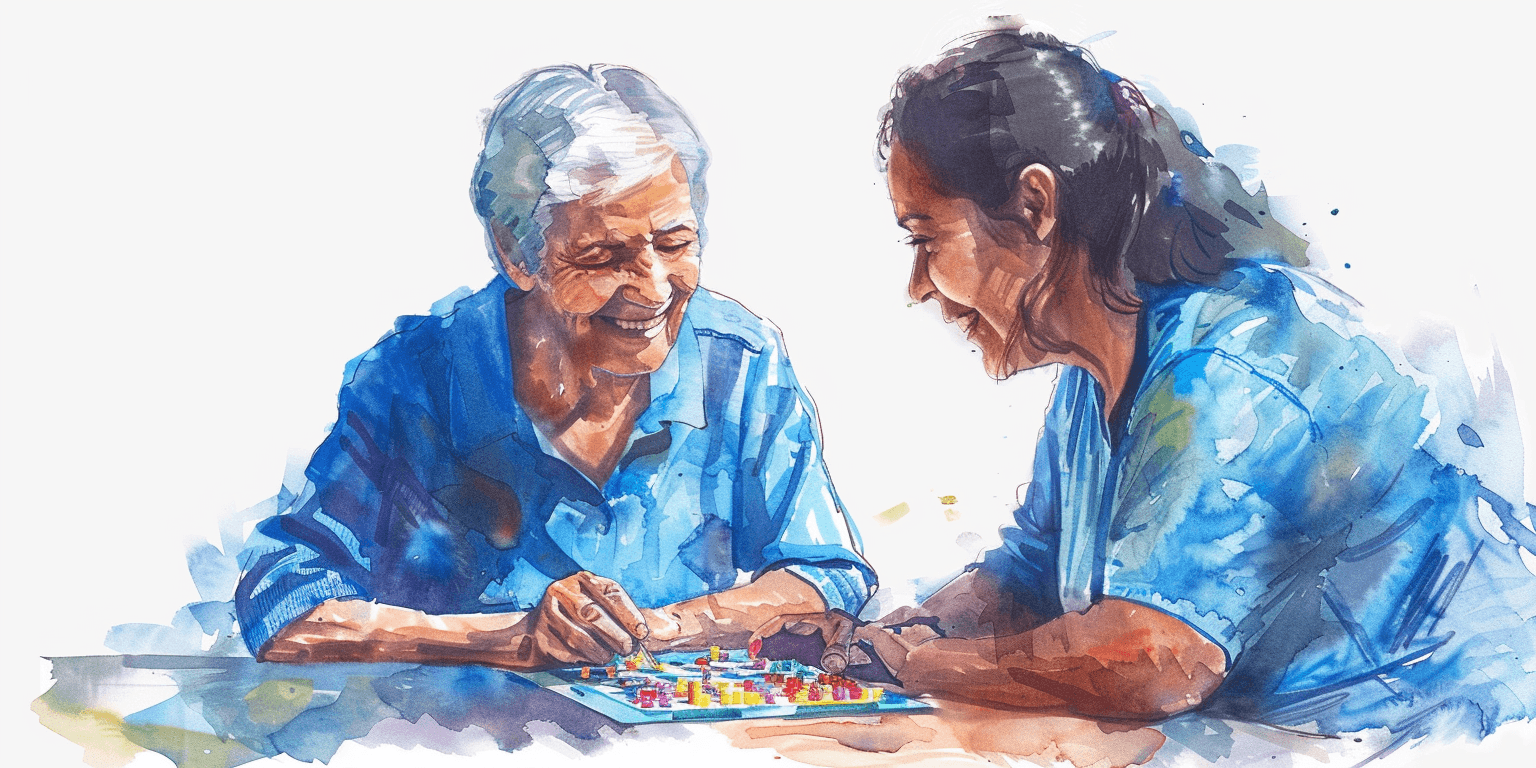

Stay Sharp, Stay Happy: Fun ways to keep our mind active as we age!



Neelam Dabholkar, MBA
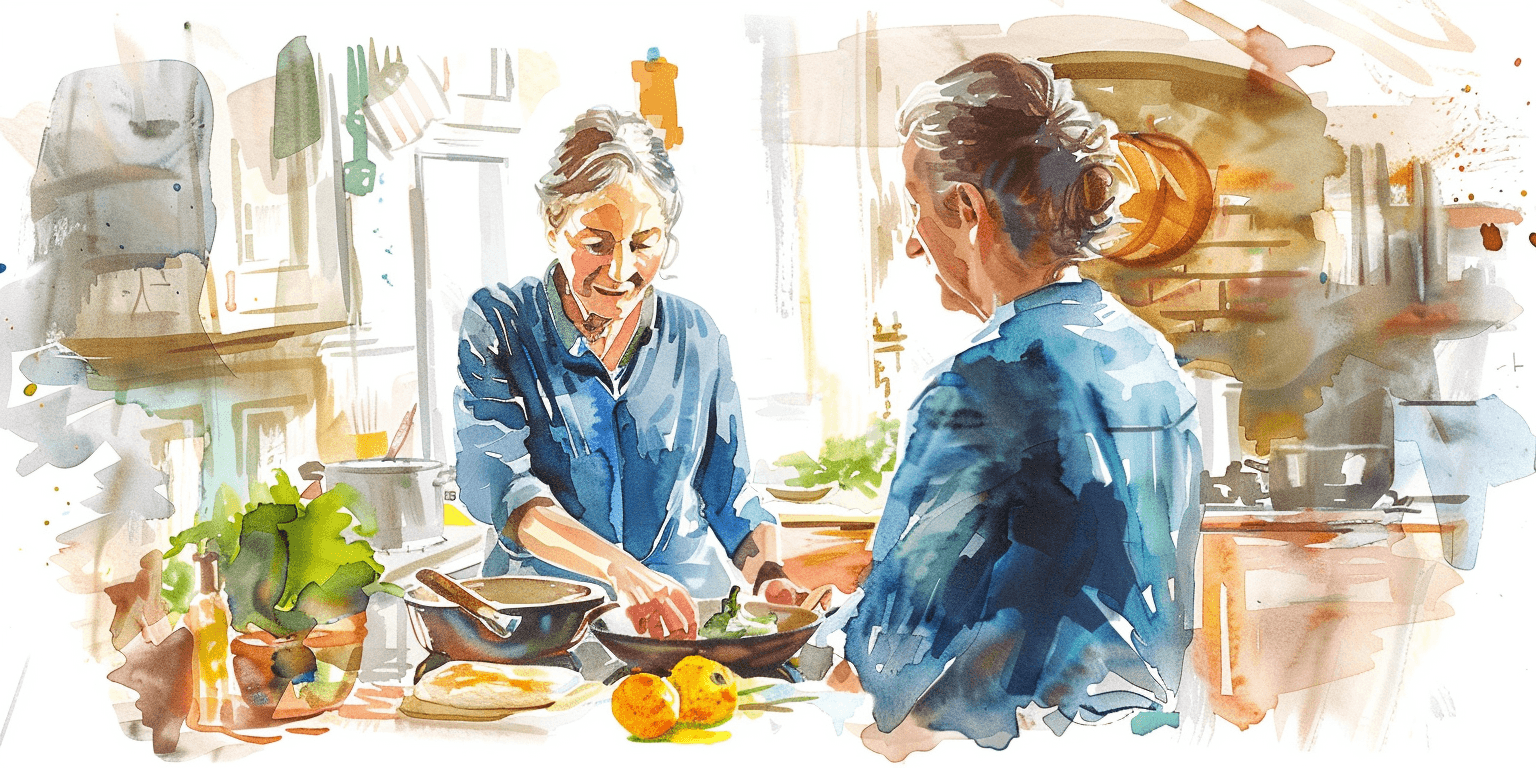

Nutrition Tips for Seniors at Home



Jon Levinson
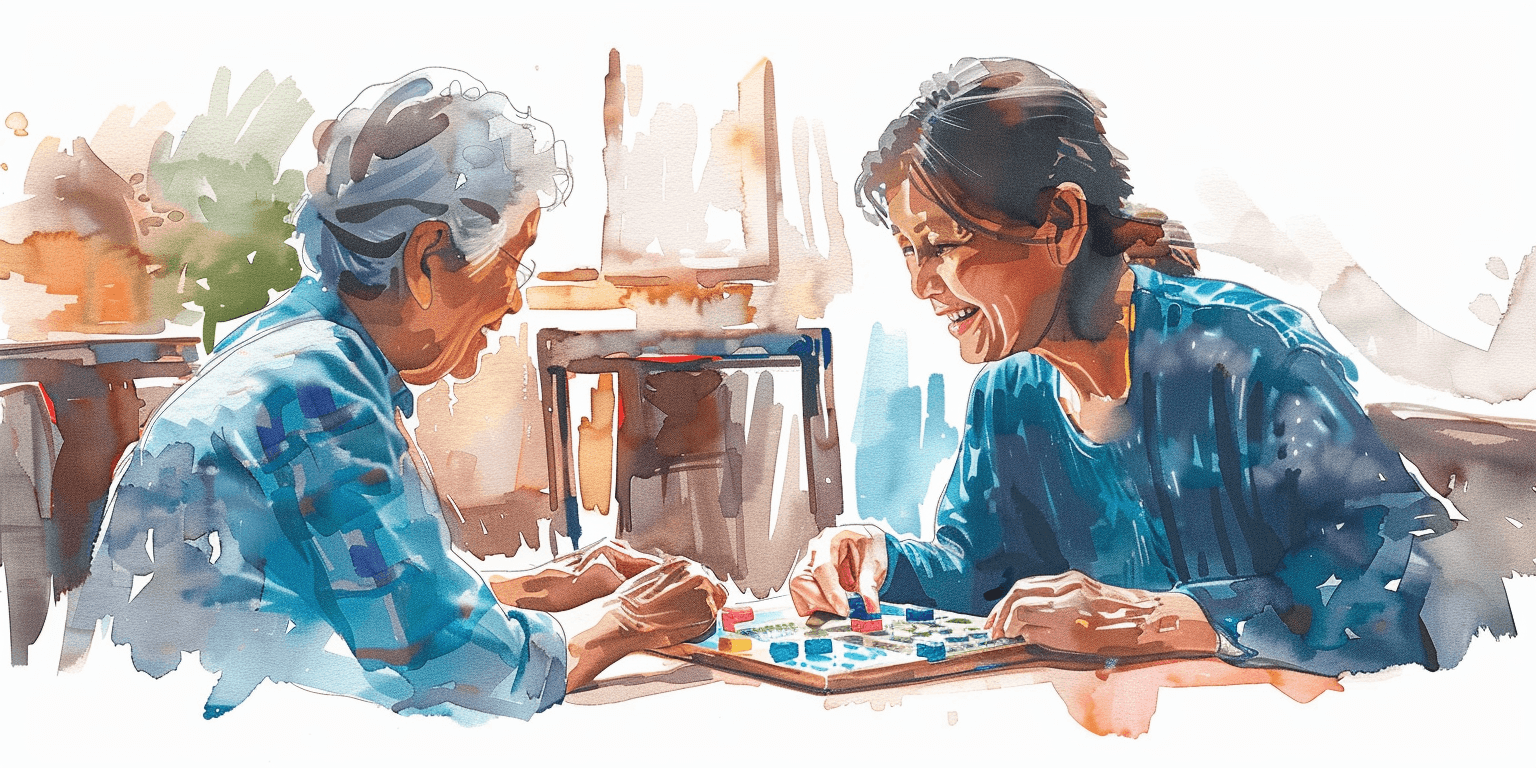

How In-Home Senior Care Supports Independence



Lowrie Hilladakis
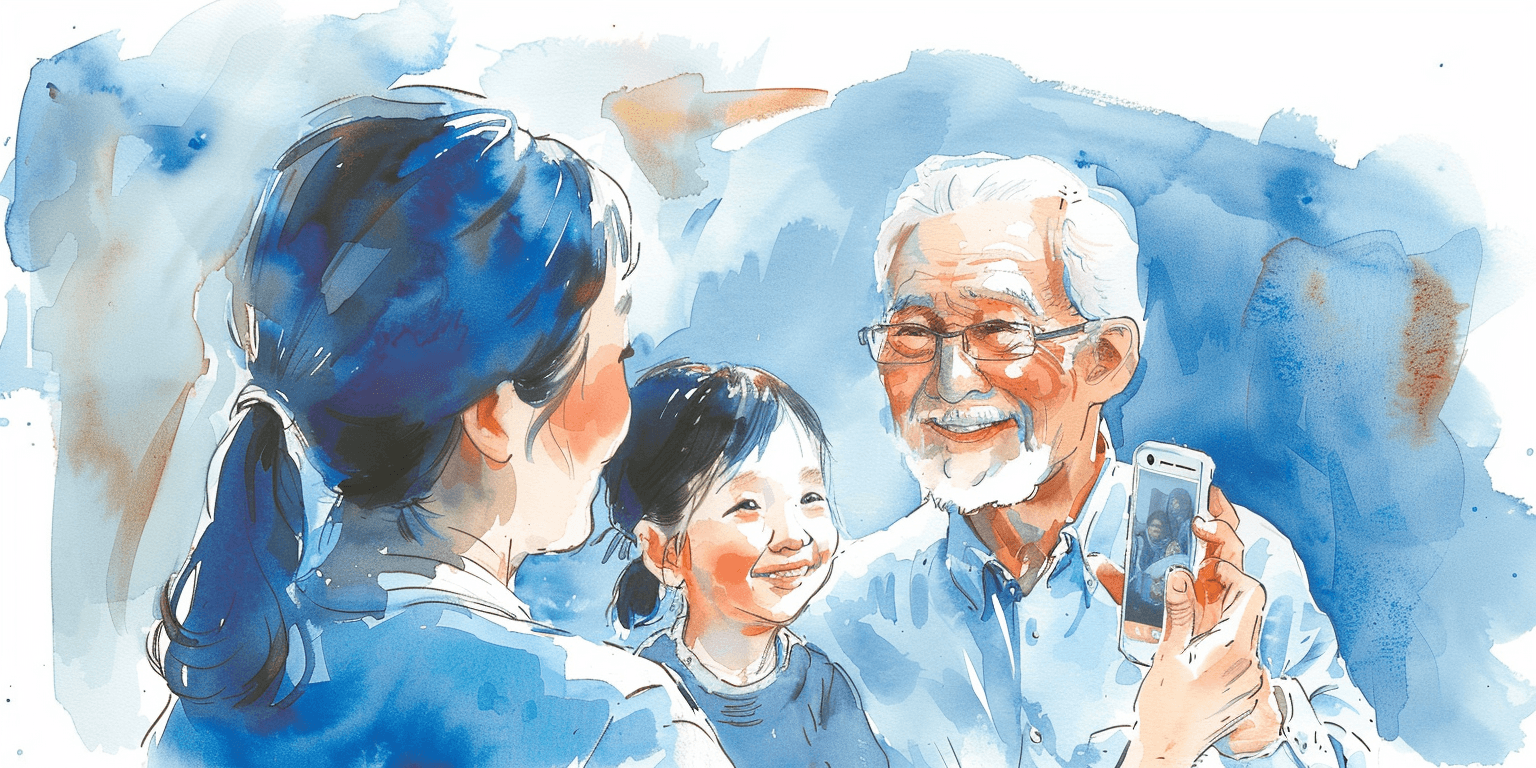

Building a Support Network: How Families Can Strengthen Connections for Seniors
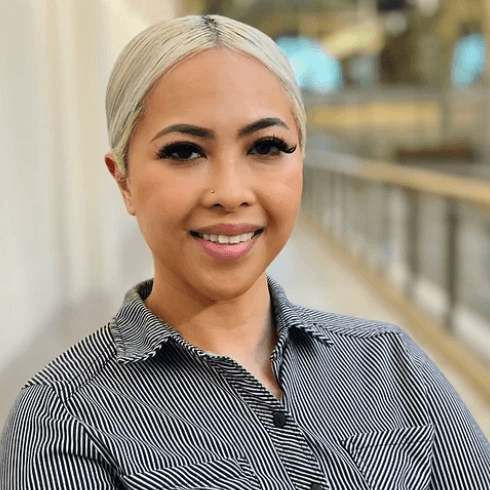


Vanessa Bustos
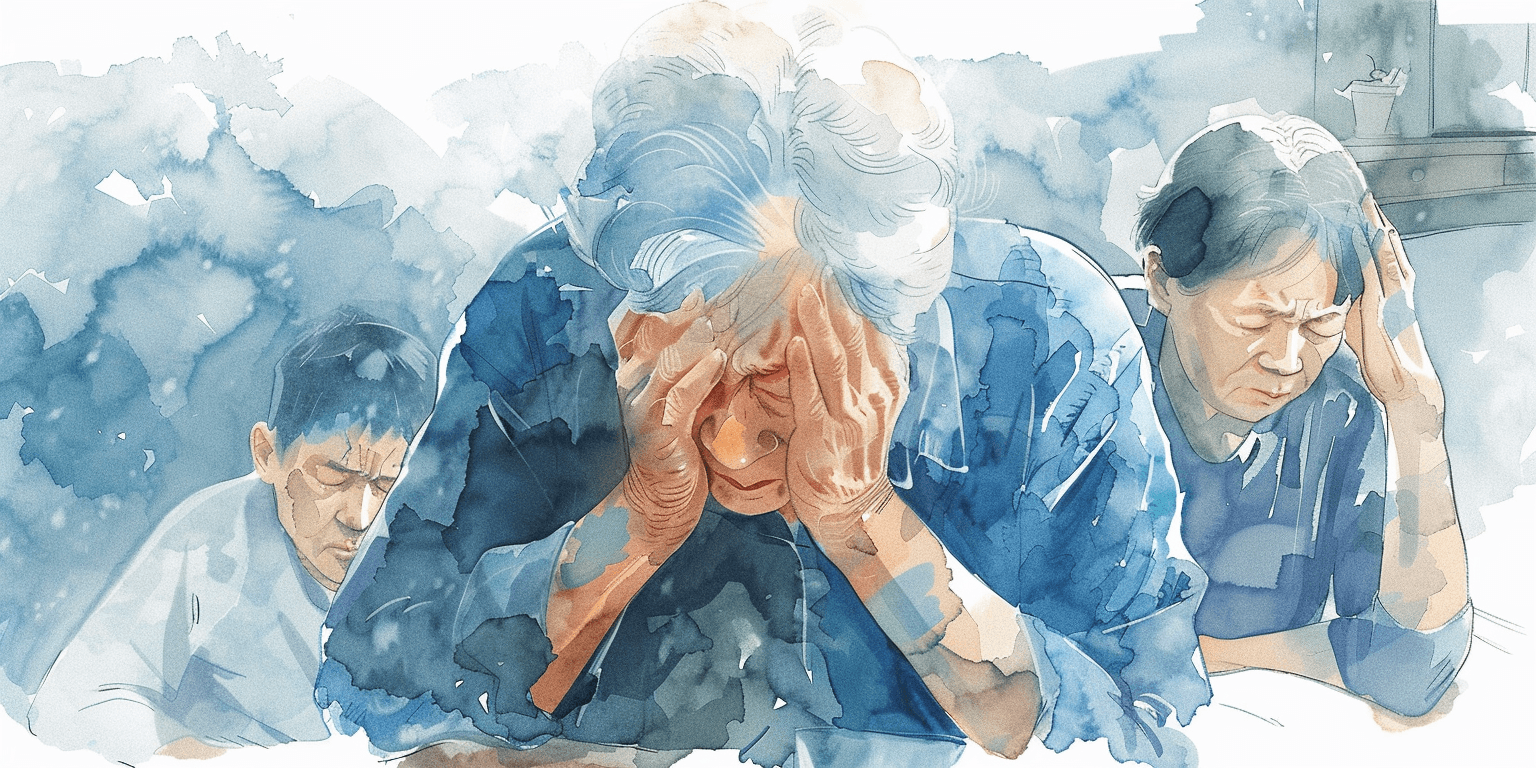

Preparing for Emergencies: Building a Watertight Senior Care Plan



Ian Gillis
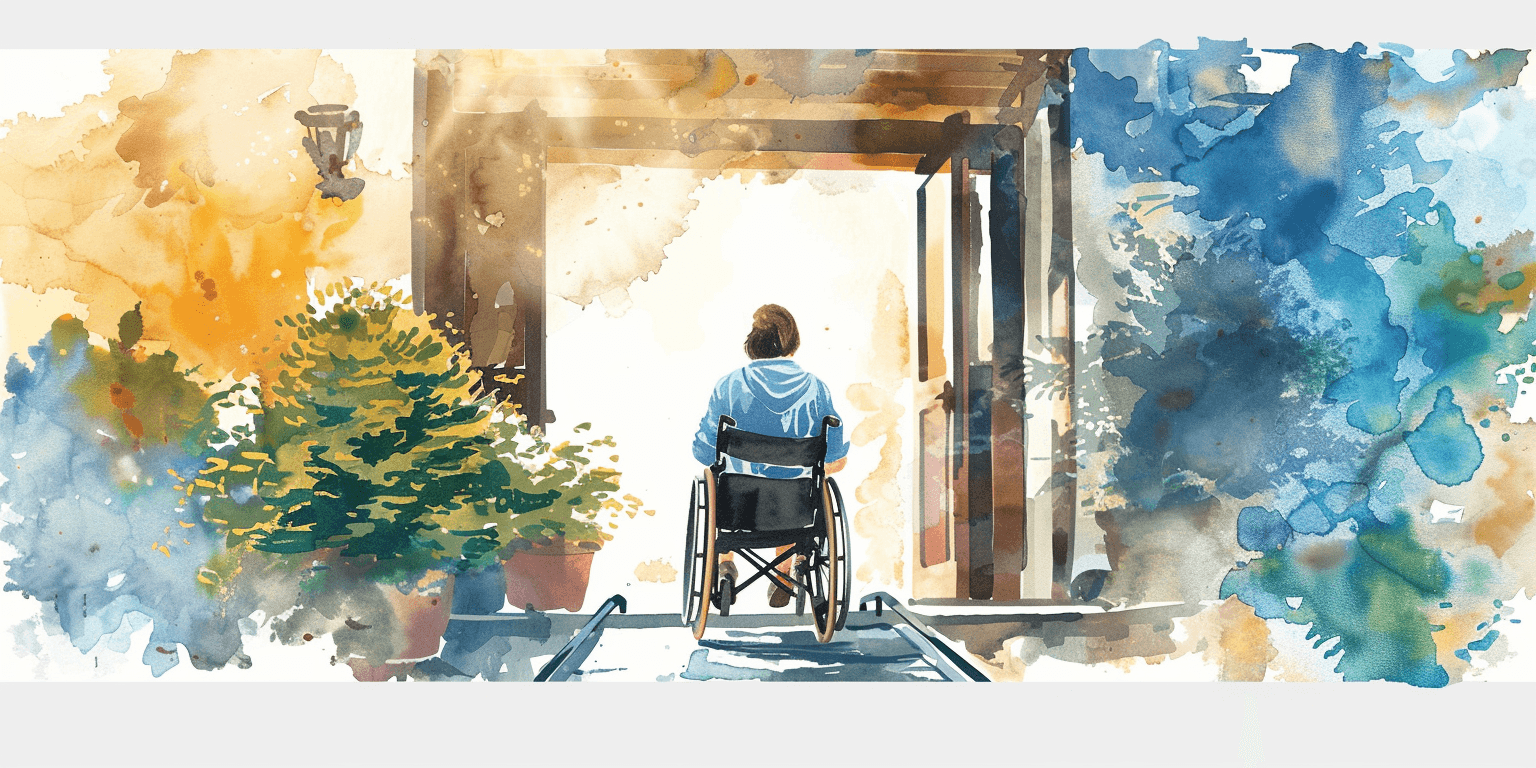

Adapting to Aging: Home Modifications That Make a Difference



Quynh Thi Pham, OTS


The Importance of Physical Therapy in Post-Acute Care



Renée Markels


Aging Policy Landscape: What We Learned



Lowrie Hilladakis
GEt started for free
Better care starts with Clara.
Find, hire, and pay top-notch caregivers without the headache for a price that fits your budget.

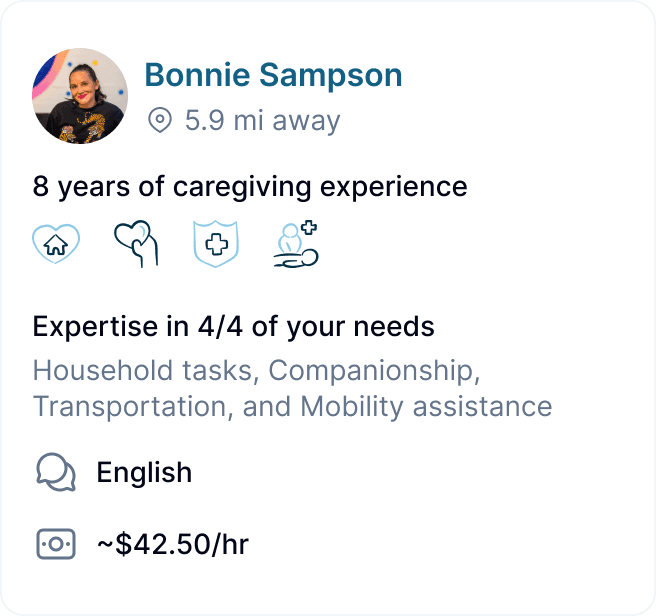
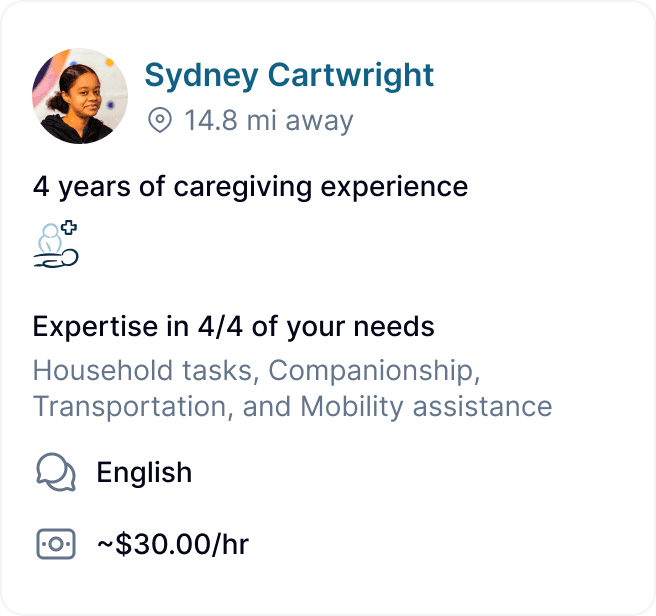
GEt started for free
Better care starts with Clara.
Find, hire, and pay top-notch caregivers without the headache for a price that fits your budget.



GEt started for free
Better care starts with Clara.
Find, hire, and pay top-notch caregivers without the headache for a price that fits your budget.

